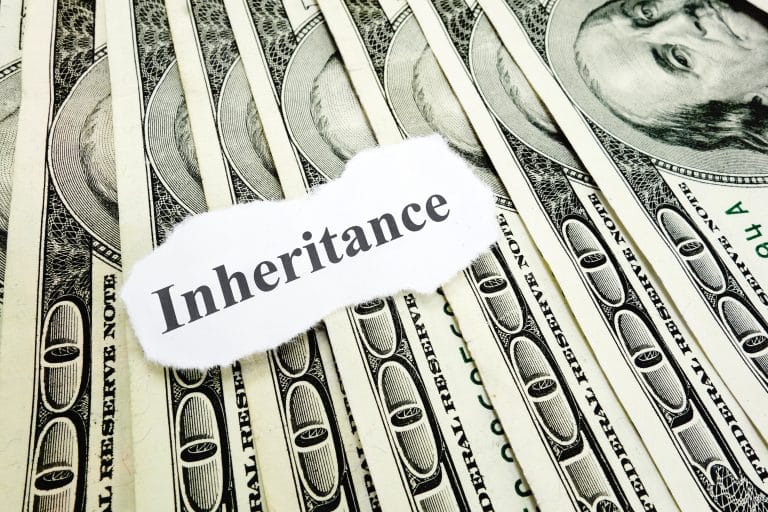Yes. Inheritance can affect Social Security disability benefits.
Much depends on the type of benefit you receive. Below, we discuss the implications of inheritances in the two types of Social Security disability programs and how you may be able to preserve your benefits.
Will an inheritance affect Social Security Disability Insurance (SSDI) benefits?
The Social Security Administration (SSA) provides two types of disability benefits, one for disabled workers (SSDI) and one for disabled adults and children with limited income and resources.
The former is a safety net for workers who become disabled before retirement age and can no longer work. Eligibility is based on work history and the number of work credits on the recipients’ records, not on income, assets, or resources.
The only income that would affect SSDI benefits is earned income that exceeds $1,170/month. Inheritances are unearned income. As such, any inheritance you receive will not affect SSDI benefits.
Will an inheritance affect Supplemental Security Income (SSI) benefits?
The SSA offers another disability program, Supplemental Security Income or SSI, for blind persons, disabled children, and disabled adults with limited work histories. Because it is a need-based program, your income, assets, and resources affect your eligibility.
The financial criteria for SSI for 2024 are as follows:
- Your monthly income must not exceed the Federal Benefit Rate (FBR) of $953/month for individuals or $1,415/month for couples.
- The value of your allotted assets and resources must not exceed $2,000 for individuals or $3,000 for couples. The SSA excludes your essential assets such as your home and car.
Any income — be it earned (e.g., from a job) or unearned (e.g., from an inheritance) — will affect your SSI benefits. If you have recently received an inheritance and are on SSI, you must report your inheritance to the SSA.
How does the SSA count income for the purposes of SSI?
If you are concerned about how your inheritance and income will affect your eligibility for disability benefits, it is important to note that the SSA does not count all income towards the SSI limit. The SSA will count your inheritance towards the limit unless it is protected under one of the special types of accounts we discuss in the next section. However, there are various exclusions the SSA allows that could help you qualify.
For example, some of the income the SSA does not count towards the SSI limit include:
- The first $20 you receive in a month
- Food stamps (SNAP)
- Tax refunds
- Welfare and other public benefits based on need
- Money that you use for disability-related work expenses, such as special transportation
If you are working, the SSA allows for additional exclusions to countable income. These reductions can make it easier to qualify for SSI. For example, the first $65 of earned income and half of your earnings are not included. We can examine your records to help you determine how much of your income and assets the SSA will count.
Is there any way to protect my SSI benefits if I receive an inheritance?
There are a couple of ways you might be able to protect your SSI benefits if you are going to inherit money or property. First, you can speak to the benefactor about placing the funds/property in a special needs trust. A lawyer can create the paperwork necessary to secure the trust. This will go into effect when the benefactor dies. Then, when your inheritance kicks in, you will be able to use the funds for certain expenses such as food and shelter, medical care, utilities, and education without it affecting your SSI benefits.
You can also look into getting an ABLE account, a special program designed for qualified individuals with disabilities. ABLE (Achieving a Better Life Experience) accounts are tax-advantaged savings accounts that allow the family members to “set aside $14,000 a year for children and other beneficiaries who are disabled before age 26. SSI and Medicaid recipients will be allowed to have up to a $100,000 ABLE account without affecting their eligibility for these benefits,” explains Bankrate.
If you became disabled before the age of 26 and you are already receiving SSI or SSDI, then you are automatically qualified for an ABLE account. If the benefactor puts your inheritance in an ABLE account, it will not affect your eligibility for SSI.
To learn more about ABLE accounts, visit the ABLE National Resource Center
What should I do if I have questions about an inheritance?
We are unable to give you advice about your specific situation. To find out if an inheritance will affect your SSI benefits you can contact the attorney who represented you (if you had one), an estate planning attorney (including the one handling the estate of the person from whom you are inheriting) or contact Social Security directly. If you call our office, we will need to direct you to these same sources.
What do I do if the SSA prematurely shut off my Social Security disability benefits?
Millions of Americans living with disabilities count on monthly Social Security disability benefits for their basic needs. If you recently received notification that the SSA denied or prematurely shut off your Social Security disability benefits, you have the right to appeal your disability case. Lunn and Forro, PLLC can help. We will review your file, determine where the issue lies, and then walk you through the appeals process.
There are several levels of appeals we can use, so do not lose hope on collecting benefits.
Call our office today and speak to a disability lawyer about your rights and legal options: 888-966-6566.







